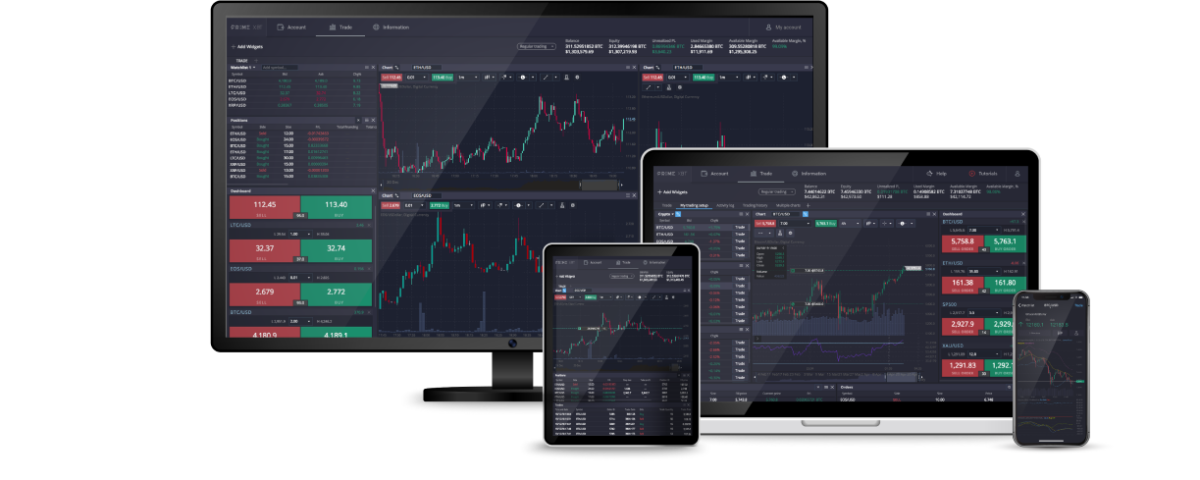Explaining Cryptocurrency Your Path to Mastery with Blockchain Education

Cryptocurrency in Australia Your Path to Success with Blockchain Education
August 2, 2024
Discovering a Good Crypto Investment How Blockchain Education Can Guide Your Journey
August 2, 2024
Explaining Cryptocurrency: Your Path to Mastery with Blockchain Education
Cryptocurrencies have become a significant part of the global financial landscape, offering exciting opportunities for both seasoned investors and newcomers alike. If you’re looking to understand cryptocurrency better and enhance your trading skills, Blockchain Education is here to guide you. In this article, we'll delve into what cryptocurrencies are, how they work, and how Blockchain Education can help you master the art of trading.
What is Cryptocurrency?
Cryptocurrency is a type of digital or virtual currency that uses cryptography for security. Unlike traditional currencies issued by governments, cryptocurrencies operate on decentralized networks based on blockchain technology. This means they are not controlled by any central authority, making them immune to government interference or manipulation.
Key Features of Cryptocurrency:
- Decentralization: Operates on a peer-to-peer network.
- Transparency: Transactions are recorded on a public ledger (blockchain).
- Security: Cryptography ensures secure and tamper-proof transactions.
How Does Cryptocurrency Work?
Cryptocurrencies work through a process known as blockchain technology. Here’s a simple breakdown:
1. Blockchain Technology
The blockchain is a decentralized ledger that records all transactions across a network of computers. It consists of a chain of blocks, each containing a list of transactions. Once a block is filled with transactions, it is added to the chain in a linear, chronological order.
How Blockchain Ensures Security:
- Consensus Mechanisms: Validate transactions and secure the network (e.g., Proof of Work, Proof of Stake).
- Cryptographic Hash Functions: Encrypt transaction data to prevent tampering.
2. Cryptocurrency Mining
Mining is the process by which new cryptocurrency transactions are added to the blockchain. Miners use powerful computers to solve complex mathematical problems, validating transactions and securing the network.
Mining vs. Staking:
| Method | Description | Use Case |
|---|---|---|
| Mining | Solving mathematical problems to validate transactions | Bitcoin |
| Staking | Holding cryptocurrency in a wallet to support network operations | Ethereum 2.0 |
Popular Cryptocurrencies
Several cryptocurrencies have gained prominence, each with unique features and use cases. Here’s a look at some of the most well-known:
1. Bitcoin (BTC)
Bitcoin is the first and most well-known cryptocurrency. It was created as a decentralized digital currency without a central bank or single administrator.
Key Characteristics:
- Limited Supply: Maximum of 21 million BTC.
- Store of Value: Often referred to as "digital gold."
2. Ethereum (ETH)
Ethereum is a blockchain platform that enables developers to build decentralized applications (dApps) and smart contracts.
Key Characteristics:
- Smart Contracts: Self-executing contracts with the terms directly written into code.
- Decentralized Applications: Applications running on the Ethereum blockchain.
3. Ripple (XRP)
Ripple focuses on facilitating fast and low-cost cross-border payments. It is widely used by financial institutions for international money transfers.
Key Characteristics:
- Speed: Transactions settle in seconds.
- Partnerships: Strong relationships with banks and financial institutions.
Navigating Cryptocurrency Trading with Blockchain Education
Trading cryptocurrencies can be both thrilling and challenging. Blockchain Education offers a suite of resources to help you master cryptocurrency trading and make informed decisions.
1. Explore Our Crypto Trading Platform
Our Crypto Trading Platform Guide provides detailed insights into the best trading platforms available. Understanding platform features, fees, and security measures is essential for successful trading.
Platform Comparison:
| Platform | Features | Security | Fees |
|---|---|---|---|
| Platform A | Advanced Tools | High | Low |
| Platform B | User-Friendly | Medium | Medium |
| Platform C | Broad Asset Range | Very High | High |
2. Master Crypto Trading with Leverage
Our Crypto Trading with Leverage guide helps you understand how to use leverage effectively in cryptocurrency trading. Leverage allows you to amplify your trading positions but comes with increased risk.
Leverage Benefits and Risks:
| Benefit | Risk |
|---|---|
| Potential for Higher Returns | Increased Risk of Losses |
| Ability to Trade Larger Positions | Higher Margin Requirements |
3. Discover Our Crypto Trading Website
Our Crypto Trading Website offers an array of tools and resources for traders. From live market data to analysis tools, our website is designed to support your trading journey.
Website Features:
- Live Market Data: Stay updated with real-time information.
- Analysis Tools: Utilize charts and indicators to make informed decisions.
4. Enhance Your Skills with Our Crypto Trading Platform
Our Crypto Trading Platform provides a comprehensive overview of various trading platforms and their functionalities. Learn how to choose the right platform for your needs and improve your trading strategies.
FAQ: Understanding Cryptocurrency
Q1: What is the difference between cryptocurrency and traditional currency?
A1: Cryptocurrency is a digital or virtual currency that operates on a decentralized network, while traditional currency is issued and regulated by a central authority like a government or central bank.
Q2: How can I start trading cryptocurrencies?
A2: Begin by researching different cryptocurrencies, selecting a reputable trading platform, and learning about trading strategies. Blockchain Education offers guides and courses to help you get started.
Q3: What are the risks associated with cryptocurrency trading?
A3: Cryptocurrency trading involves risks such as high volatility, potential for loss, and regulatory changes. It’s essential to educate yourself and use risk management strategies.
Conclusion: Achieve Cryptocurrency Mastery with Blockchain Education
Understanding cryptocurrency and mastering trading requires the right resources and guidance. Blockchain Education offers comprehensive tools, guides, and courses to help you navigate the complex world of cryptocurrency.
Explore our website to learn more about how Blockchain Education can support your trading journey. Join our course membership program today and gain access to exclusive resources and expert guidance designed to help you succeed in cryptocurrency trading.







